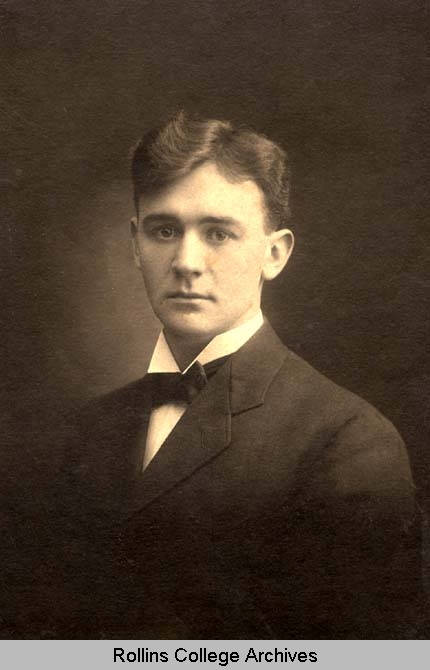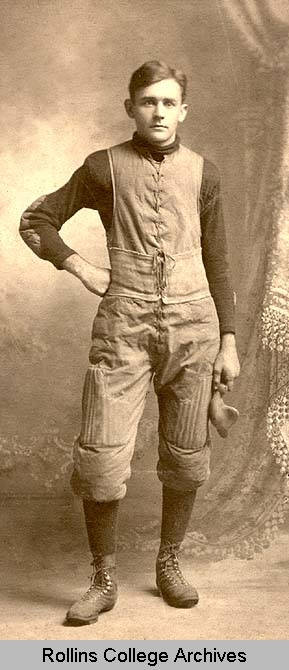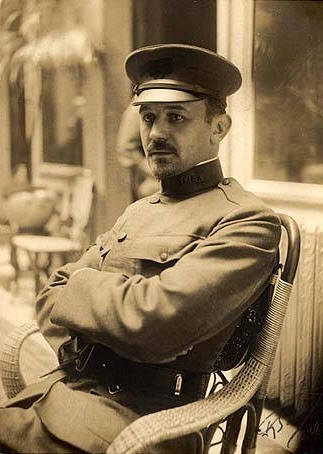Arthur Enyart (182-1961):
Dean Emeritus of Men
|
Enyart became the Dean of Men at
Rollins in 1912, after President William Blackman requested a
“disciplinarian.” Instead of following the rules elucidated in the
College’s syllabus of behavioral guidelines, Enyart tore up his copy in
favor of a policy of self-discipline. “Discipline is no good whatsoever
unless it is self-imposed.”[1]
He also served as co-acting president of Rollins with William R. O’Neal from
1916 through 1917. Assuming the role of professor, Enyart also taught
English (1912 to 1917), Philosophy (1912 to 1914, 1915 to 1917), and the
Bible (1915 to 1916). In 1917, Enyart went on a hiatus from Rollins to work
for nearly two years in
Best known for his nontraditional methods regarding discipline, immaculate dress, predilection for reckless driving, and annual holiday readings of Charles Dickens’ A Christmas Carol (1843), Enyart received the affectionate title “Mr. Rollins.” Numerous instances of his informal relationship with the students, such as dousing prankster students with a fire hose after stealing a bell from an abandoned turpentine mill and ringing it on top of Knowles Hall, or sneaking pupils out on a Sunday to go boating at Wekiwa Springs (despite compulsory church attendance), made him an especially beloved figure. His commitment to the school earned him a Rollins Declaration of Honor in 1939 and the Algernon Sydney Sullivan Medallion (1953). Aside from his position as dean, professor, chair of economics and business administration, director of chapel activities, and serving as consultant to the administration (1955), Enyart also valued highly the athletic departments. He received the O.O.O.O. (Omnipotent Order of Osceola) trophy from Rollins in 1950 (the first faculty member to do so), in recognition of his sportsmanlike spirit. For example, when describing a recollection about Rollins’ football games he stated: “Many, many a thing is lost or gained by the spirit you put into it.”[2] Thus, in 1968 the College commemorated his contributions by dedicating the Enyart-Alumni Field House to him. Enyart died on June 9, 1961. -Angelica Garcia |
||||
| Project Home | List of Names | Rollins Archives | Olin Library | Rollins College |


